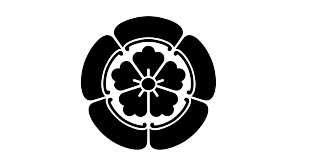Family-Crests
Overview
The “Maruni Dakimodaka” crest is a traditional Japanese family emblem featuring the sagittaria plant, also known as “omodaka.” Enclosed within a circle, this design elegantly captures the strength and beauty of the plant, symbolizing prosperity and resilience.
Historical Significance
The sagittaria plant has long been associated with victory, often referred to as the “Victory Grass.” Samurai families adopted this crest to symbolize triumph and protection in battle. Its aquatic nature also represents vitality and abundance, making it a popular choice among feudal lords and warriors from the Kamakura to Edo periods.
Symbolism
The leaf shape of the sagittaria signifies growth, prosperity, and strength. The name “omodaka” is phonetically linked to “raising one’s name,” symbolizing the elevation of family status and honor. The circular enclosure represents unity and protection, emphasizing family cohesion.
Modern Usage
Today, the “Maruni Dakimodaka” crest is used in traditional ceremonies, crafts, and as a symbol of Japanese heritage. Its timeless and elegant design also finds applications in modern logos and artistic works.

